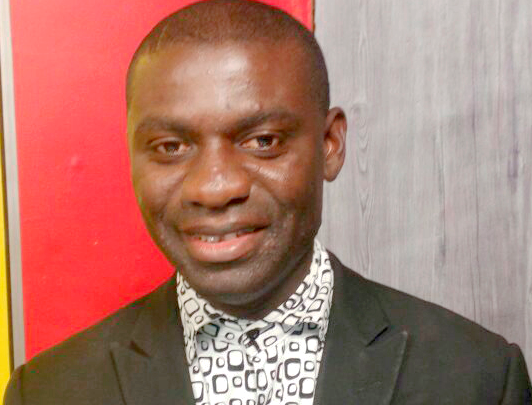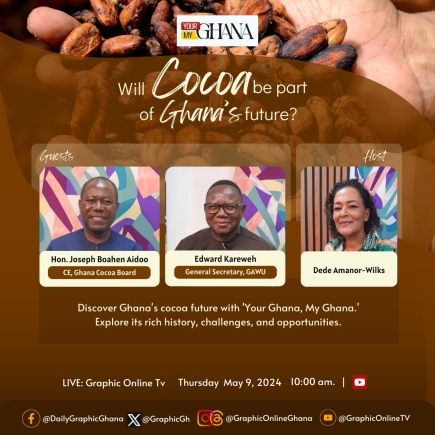
Realities, myths and analysis of other consulting markets (II)
This is a continuation of an earlier publication on realities, myths and analysis of the consulting market. Discussions in the previous write-up ended on various segments in the consulting industry.
Advertisement
The ushering of individuals into the consulting profession and their continuous development and growth in the profession hinge on understanding of certain key principles. Consultants must identify and embrace certain key factors that could impact their success in their chosen profession. Generally, the consultant is expected to:
- i) Understand the reasons underlying his or her decision to venture into the consulting profession; and be open to novel ideas, guidance and assistance from others.
- ii) Carefully choose his or her specialised field since this may be the consultant’s lifetime job, or run the consultancy business alongside other job(s).
iii) Be prone to listening more, and talking less; the consultant must have a listening ear. He or she must allow clients to do most of the talking while listening attentively and proffering “mental” solutions to the problems. Here, the consultant is expected to apply the principle of “use your two ears and one mouth.”
- iv) Establish internal and external networks to provide the requisite support and guidance for current and future careers.
- v) Be susceptible to change. Generally, the dynamic and competitive nature of the global business environment makes change an inevitable part of a professional’s career.
- vi) Be passionate about the chosen professional career. The consultant must develop strong interest and commitment to the consulting profession.
vii) Adjust to the consulting profession. A new entrant may require some amount of time to effectively adapt to the consulting environment and its challenges.
viii) Know that he or she is not the central embodiment of wisdom; the consultant may not have answers to all questions likely to be posed by clients. To this end, the consultant must be humble to admit he or she does not readily have an answer to a challenging question and that, he or she would research on, or enquire about it and get back to the client.
- ix) Be open to continuous learning. Learning is an ongoing process. As a result, the consultant must avail him- or herself to learning new conventions and innovations in the field of consulting.
- x) Pay attention to his or her personal health. The consultant must strive to stay healthy at all times and remember that, the consulting journey is a marathon, not a sprint. This means consulting is a lifelong process, not a transient or an ad hoc profession.
Consulting is often described as a profession for the younger generation because it requires a lot of energy. Indeed, travelling across the length and breadth of Ghana, and across the globe will require a lot of energy, in addition to time and financial commitments. The implication is, the consultant must “cumulate” enough energy to effectively withstand the test of “travelling times.”
Myths of consulting
Some of the misconceptions surrounding the activities of professionals in the consulting industry are relatively not strange; misconceptions are a common place in other disciplines across the globe. In the world of business, fads, untested theories and myths abound. Strongly held myths subtract from (but do not add to) upward growth of consulting firms.
The following are some identified myths and how consulting professionals could overcome them to advance their economic and professional cause.
Myth 1: I am not the leading expert. The consultant believes he or she did not win the right to a given contract because he or she is not the best expert in the specialised field. As a result, the consultant becomes demoralised.
Fact: What is worth remembering is, the so-called leading expert was once in the consultant at issue’s position. The difference is, the leading expert did not give up when the professional “highway” was bumpy. Rather, he or she thought it necessary to press on towards the ultimate goal, which is becoming the strongest force to reckon with in the consulting industry. If at first you do not succeed, TRY AGAIN.
Myth 2: Large companies are more useful to the growth of consultancy firms than small companies.
Fact: This is untrue since growth correlates positively with more consultations.
Myth 3: Engaging in clever (crafty) advertising is the surest way to professional success.
Fact: The fundamental gateway to success in consulting is effective (real) advertising; engaging in clever advertising serves as an addendum to the exposure of the distinctive assets, which are the firm’s brands, through effective advertising.
Myth 4: Revenue and growth would be negatively affected by provision of free content to clients.
Fact: Providing free content serves as an effective way of attracting new clients at a low cost. Thus, provision of free content serves as an effective means of advertising your consulting firm at the least cost.
Myth 5: Seeking to attract new clients would cost about five (5) times more than the cost of retaining existing customers.
Fact: The growth of the consulting firm’s brand would suffer a setback if efforts are not made to expand the clientele base. Consequently, inasmuch as it is good to retain existing clients, it is equally important to strive to attract new ones. The consultant must remember, “The presence of varieties of fish in a soup” they say, “does not negate its taste. Rather, it enriches it!”
Myth 6: Large companies who sign lucrative contracts with consulting firms are more likely to propagate the professional exploits of the consulting firm through word-of-mouth than small companies who provide less lucrative contracts.
Fact: The foregoing assertion is tenuous in that, it would take an enthusiastic client to propagate the good professional exploits of the consulting firm, not necessarily large companies who sign lucrative contracts with the consulting firm.
Myth 7: It would be useful to focus time, energy and attention on only companies that would provide contractual assignments.
Fact: It is important to delimit the consulting frontiers to include top-tier corporations, non-profit organisations, small- and medium scale enterprises (SMEs) as well as state-owned enterprises (SOEs) to assure growth in revenue and size of the firm.
Myth 8: Management consultants must always focus their attention on the members of executive teams they work with in organisations.
Fact: Due to other pressing commitments, executive team members of organisations may not be able to always meet with management consultants. In some cases, a line manager may be asked to act in the stead of the executive team; line managers may work with consultants in general to achieve the desired goal. Interactions with line managers should be seen by consultants as an opportunity to add to their repertoire of networks.
Myth 9: Consultants travel across the globe at the expense of their clients (mostly organisations). Consultants travel in first-class flights, eat in five-star restaurants, and spend the travel night(s) in five-star hotels. Generally, consultants’ lifestyles are characterised by glamour.
Fact: The travel expenses of consultants may be fully or partially borne by the client. Even when sponsored by clients, consultants may not always find themselves in five-star hotels or restaurants; they may not always travel in first-class flights.
Myth 10: In their quest to complete clients’ projects on schedule, consultants spend sleepless nights.
Fact: In some cases, consultants go the extra mile to complete contracted projects for their clients. However, different projects have different dynamics and requirements. Accordingly, some projects may be more demanding and require more time than others.
Myth 11: The “up or out” principle is intended to rid the consulting profession of good individuals.
Fact: The up or out concept is designed to encourage consulting professionals to strive, constantly, for improvement in their spheres of professional endeavours. Stated differently, the up or out principle seeks to discourage consulting professionals from resting on their oars; it seeks to challenge them to achieve higher laurels. This is often described as the survival of the fittest.
Myth 12: Spending a longer period on a project is indicative of how difficult, technical and complicated the project is.
Fact: Usually, the time spent on a project is dependent on the expertise of the consultant. This presupposes that a consultant with a rich experience in a given project may spend less time to execute it, vice versa.





